In Marrakesh there is a restaurant to which it is always a good idea to return, and it is not only because of its good and recognized traditional food, but because with each dish that we enjoy, we are helping give new opportunities widowed, separated, divorced women and single mothers discriminated against in Morocco, where they are especially vulnerable due to their legal situation.
Amal Center It is a place designed as a safe and close space that accompanies women on their journey towards their independence and emancipation. It has been running since 2013 and was founded by Nora Fitzgerald, an American woman born and raised in Morocco.
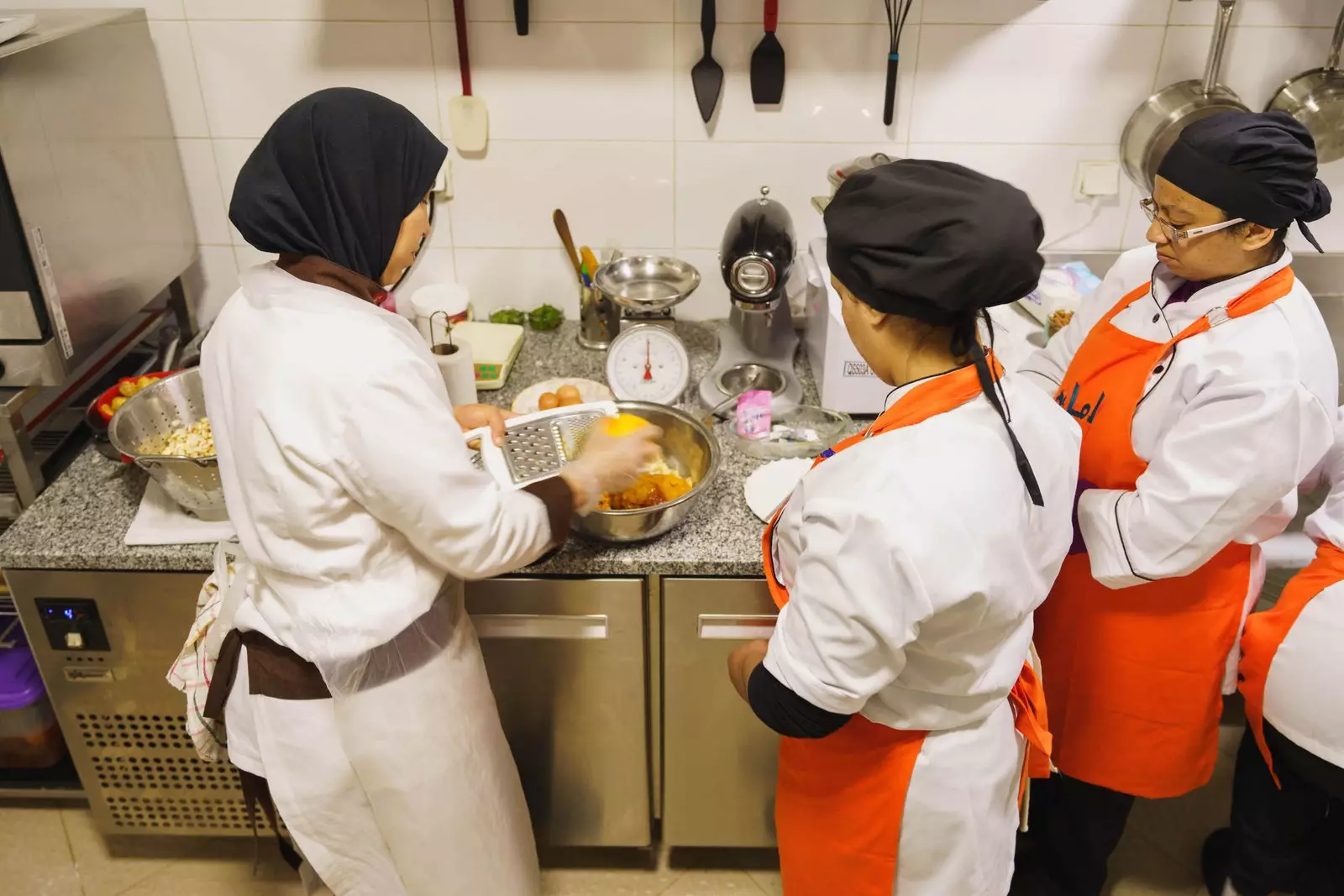
In the kitchen of Amal Center.
Over time, Nora's dream of helping Moroccan girls has grown into a structured organization with two training centers: the Guéliz restaurant and the Targa project.
When we visit Guéliz it is Friday, and the students, dressed in white chef's coats, orange aprons and black hijabs, work in the kitchen to prepare the couscous Friday, the traditional food that is enjoyed this day of the week after prayer time, and a simile to the Western family reunion on Sundays after morning worship.
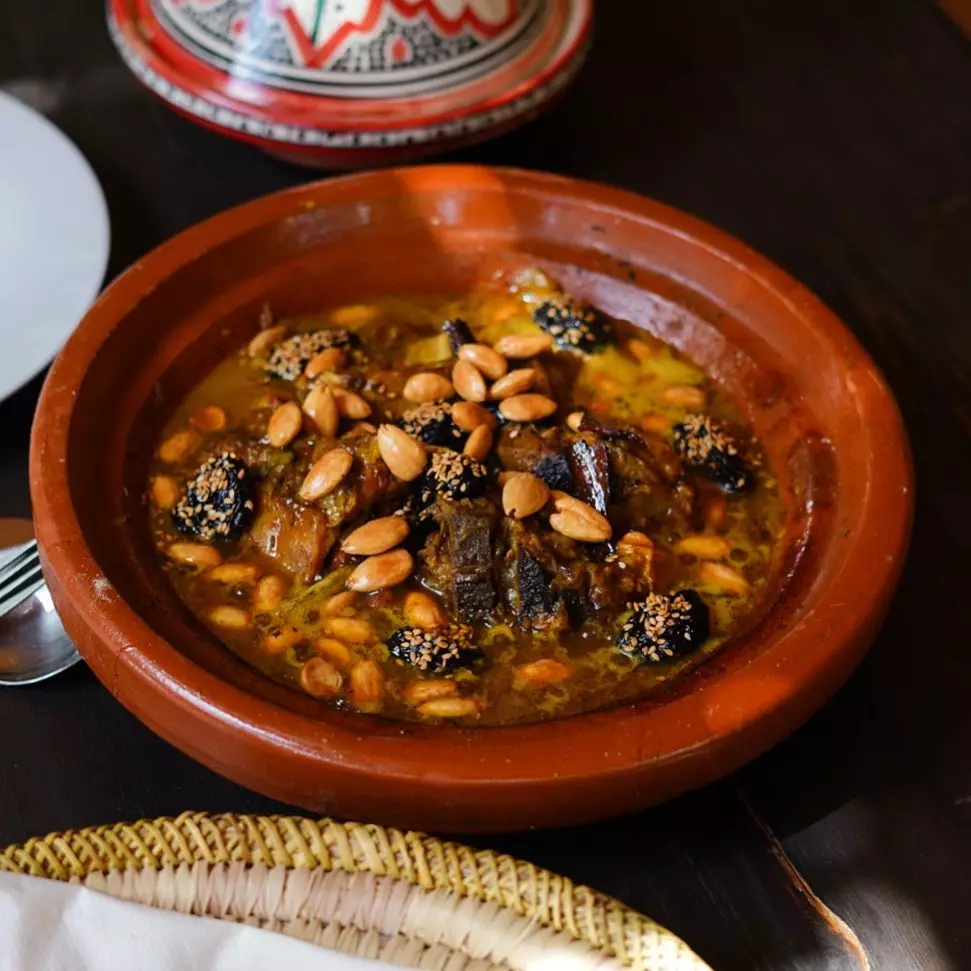
Tajine with lamb, almonds and plums.
Share a couscous on Fridays It is such a deep-rooted tradition in the country that some restaurants only serve this option on this day, a process that takes more than an hour, since it requires dedication to follow each stage of its preparation, of various firings.
Traditional couscous is prepared with lamb, raisins and almonds, but in Guéliz you can eat with chicken, beef, or only with vegetables, according to our preferences. Other days of the week we can choose other Moroccan specialties from the menu, such as the tagine of kefta (Moroccan meatballs), or the chicken brochette, accompanied by a refreshing fruit juice in your garden, under the shade of one of its orange trees on the pleasant terrace of the premises.
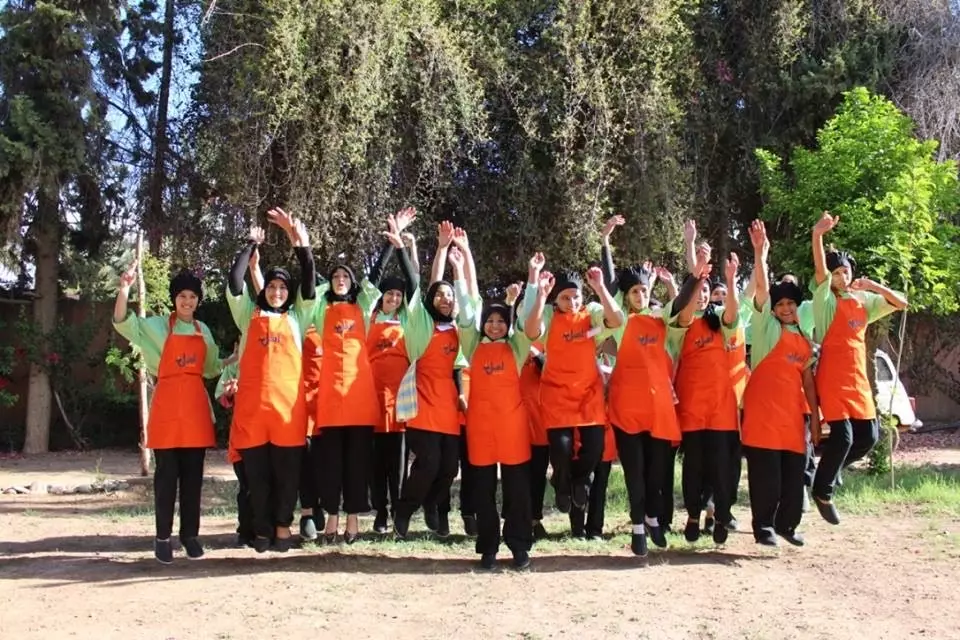
The students of Amal Center.
The restaurant is open for lunch from Monday to Saturday, from 12 noon to 3:30 p.m. The NGO takes care of living expenses for each student throughout the training period thanks to the support of customers. As his PR explains, Malak El Ouadghiri, in the past they received a grant from the swiss foundation Drosos to finance itself for two years, but thanks to its good work, at the moment they manage themselves with their own activities.
Every year the women who enter the Amal Center go through a six or seven month training program that leads them to a labor insertion in the local food industry.
Its best-known activity is that of the Guéliz restaurant, but Amal Center has a second center called Targa, where they serve a vegetarian buffet Saturdays from 1:00 p.m. to 3:00 p.m. and they give moroccan cooking class foreigners interested in learning how to prepare the local dishes more authentic. At the end of the course, clients can stay for lunch to enjoy the food they have prepared together.
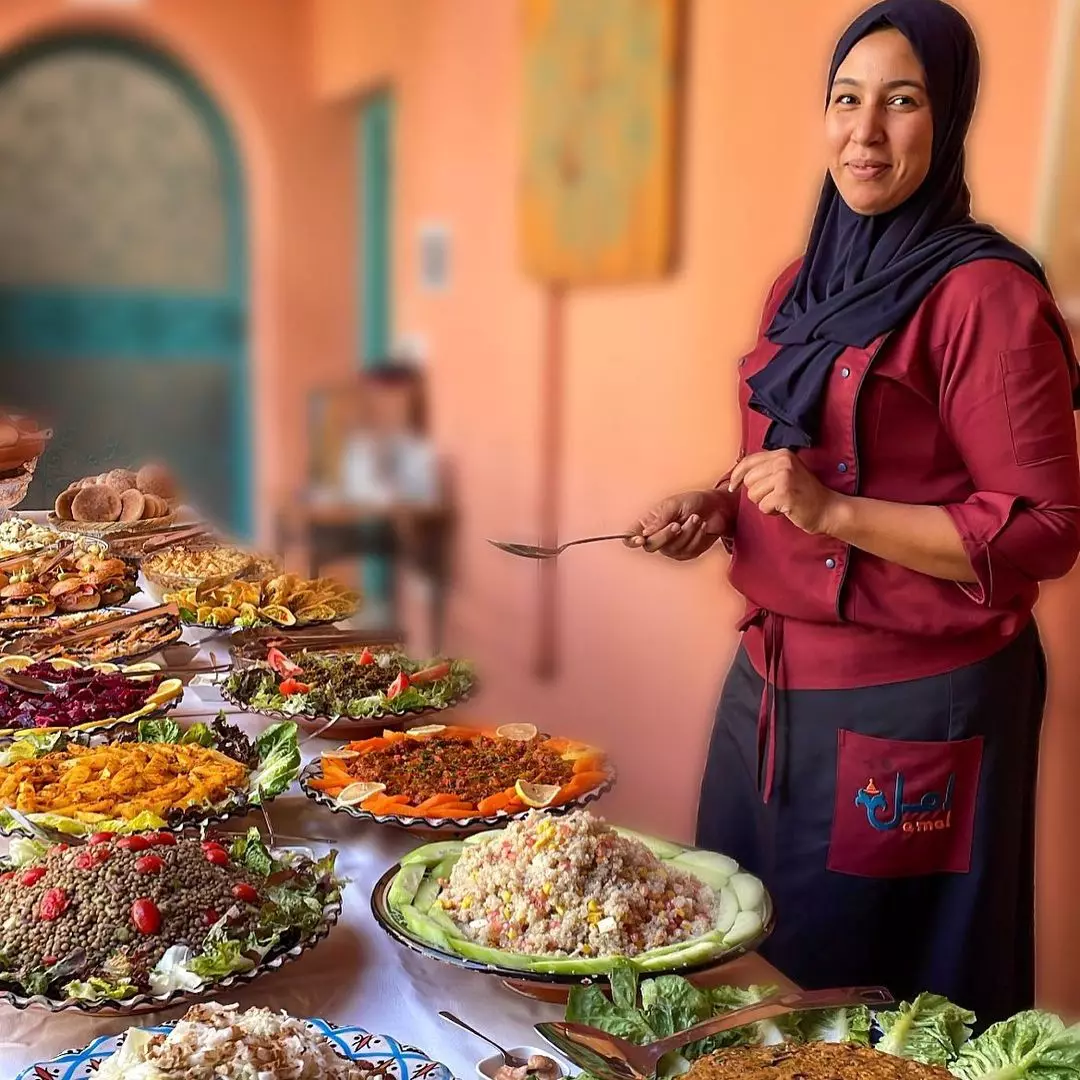
Targa vegetarian buffet.
The course offers them the learning of other skills beyond cooking, as the knowledge of french and english, which is valued in the hotel industry in Marrakech and they can practice with the foreign clients of the restaurant.
Every year they graduate at Amal Center about 60 students and 80% of them get a job. Most of them have between 18 and 35 years old, they do not have much income, and have received little or no formal education, which is why they take advantage of the tools provided by the NGO to improve their skills. Some of the students are illiterate, so they are offered study materials and technical sheets in audio format so that their condition is not an obstacle to learning.
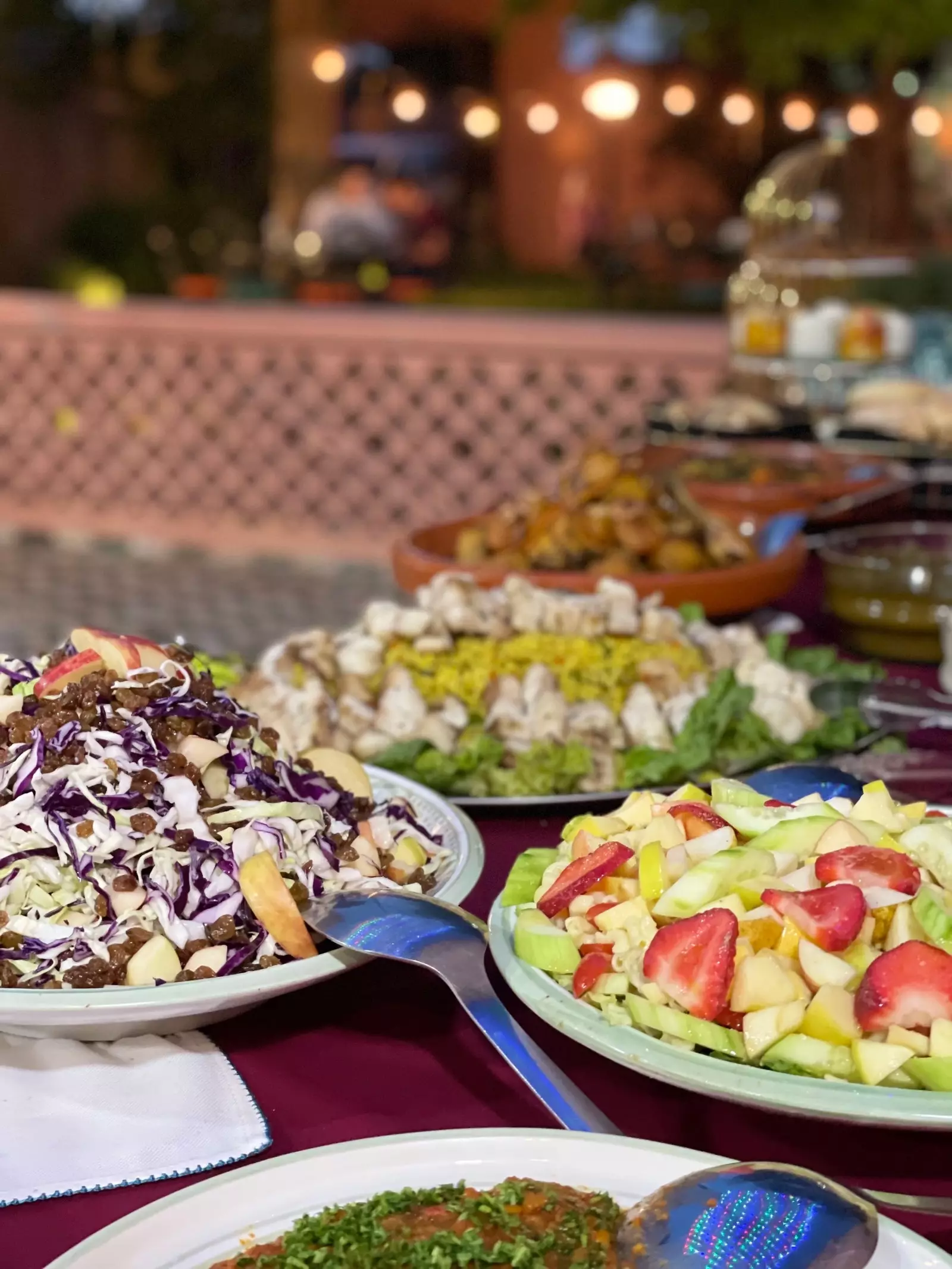
Targa center vegetarian menu.
The single and divorced mothers supported by the NGO are discriminated against in the legal framework, especially the Family Code and the Penal Code of Morocco. As Malak explains, the Family Code was updated in 2004, and since then, women are more protected than years before, but she thinks that “needs to be updated again” about some aspects.
For example, Moroccan widowed women are financially vulnerable due to the unequal shares of inheritance they receive, and other family members often find ways to not give them their share, such as taking advantage of their illiteracy. The dilemma of inheritance law, as she says, “It is a big problem in the Muslim world”, as the traditional laws are derived from the Koran and have been preserved in law meeting fierce resistance.
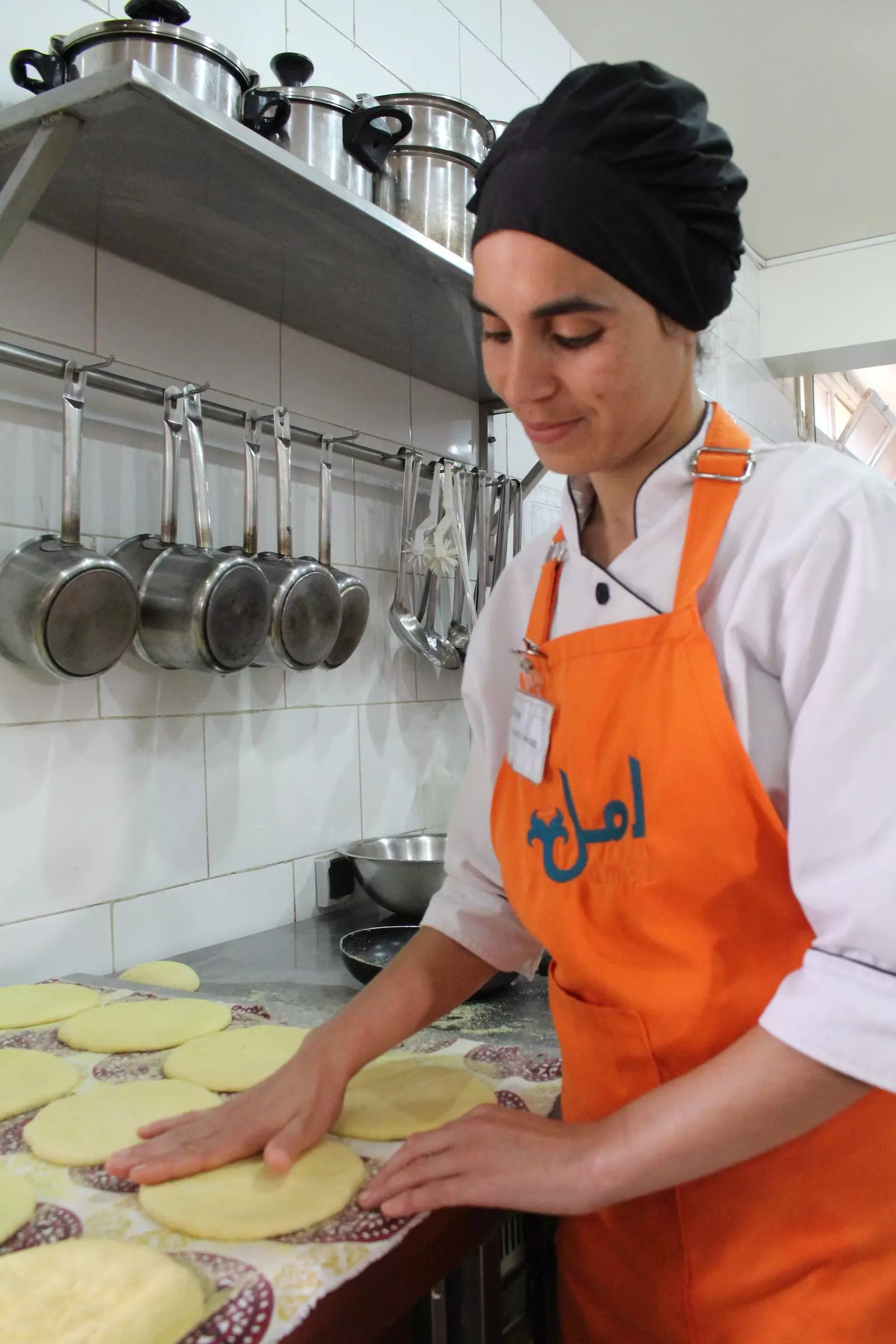
Amal Center student.
single women are deprived of any intimate relationship outside of marriage, like men, so they cannot benefit from the law that criminalizes all forms of sexist violence against them and abusive relationships. Although they can file a complaint, if they do not have sufficient evidence, they are unconsciously and indirectly confessing that they have had sexual relations outside of marriage and are punished by law.
Amal Center accompanies them in their emancipation, hence the choice of name Amal, which means hope in Arabic. A project that has become known for its action to protect women and its excellent cuisine: in 2015 it was classified among the three best restaurants in Marrakech on TripAdvisor and today it has a privileged position on the platform with a 4.5.
